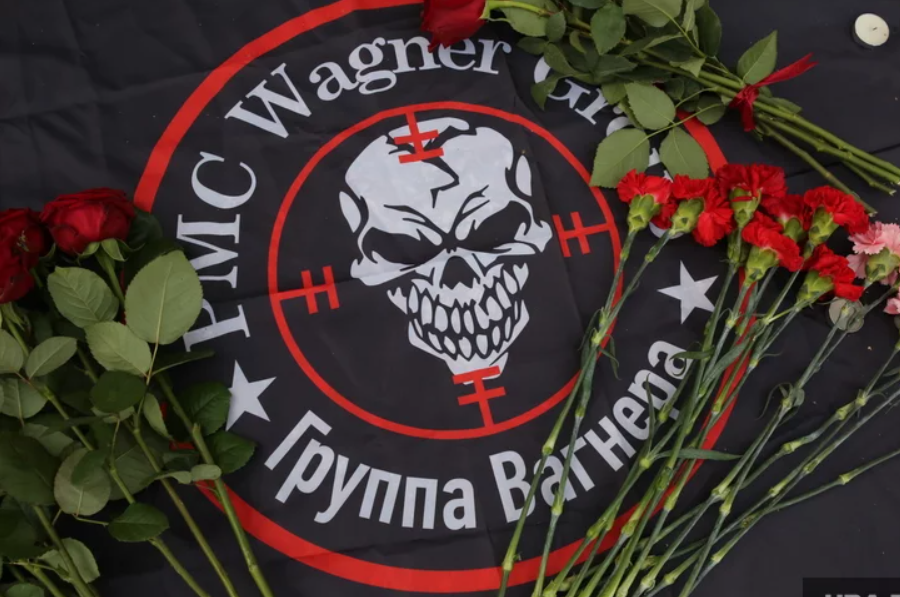Article by Tetyana Katrychenko, Maria Klymyk, Lidiya Tarash; summarized by Yevhenia Martyniuk.
The Wagner Group, a once-private military company now integrated into the Russian Army, has been long rumored to exercise exceptional cruelty wherever Russia wants to project its power. However, the scale of this cruelty in Ukraine has come to light for the first time in a report by the Media Initiative for Human Rights (MIHR). The Ukrainian NGO has gathered evidence of war crimes, including torture, extrajudicial executions, and mutilation treatment of Ukrainian PoWs. There are also indirect indications of the Wagner Group's involvement in mass crimes against civilians, though verification is hampered by restricted access to Russian-occupied Ukrainian territories.
What is the Wagner Private Military Company?
Initially a private military company created by Russian oligarch Yevgeny Prigozhin, the Wagner Group has a ten-year history of engaging in global conflicts, primarily to advance Russian interests and support authoritarian regimes in return for resource access.
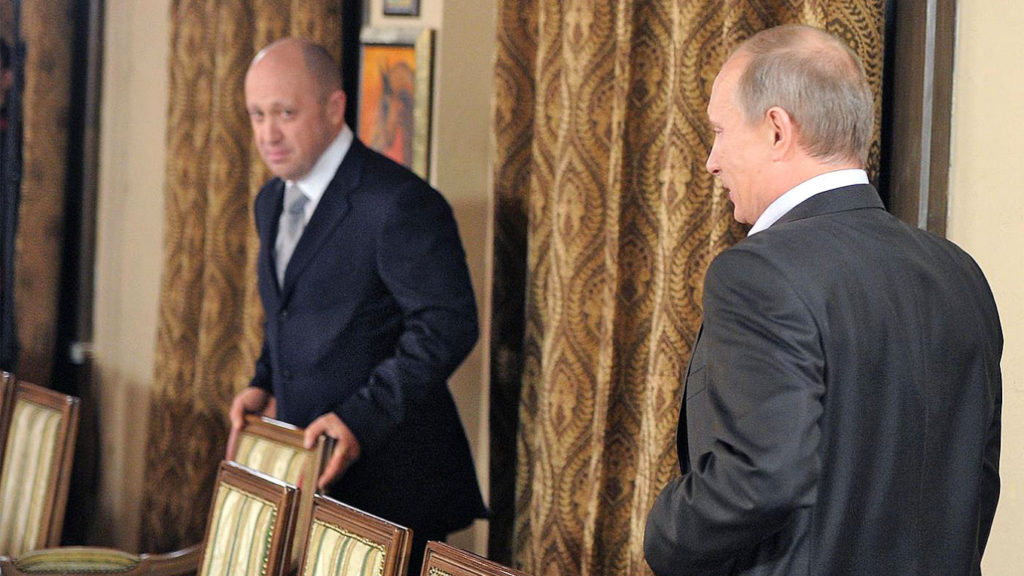
Their ranks expanded from 6,000-8,000 mercenaries to approximately 50,000 after Russia's 2022 invasion of Ukraine, with many new members being Russian prisoners offered incentives to join the war.
A key objective in Ukraine was capturing Bakhmut in Donetsk Oblast, to enable a future Russian offensive on Kramatorsk and Sloviansk. Despite heavy losses, Wagner forces seized Bakhmut in May 2023.
In early summer 2023, the Wagner Group ceased active involvement in Ukraine due to a dispute between Prigozhin and the Russian Ministry of Defense. Prigozhin's failed mutiny on 24 June 2023, marked a significant challenge to Putin's authority. On 23 August 2023, Prigozhin died in an aviation accident, with the Kremlin denying involvement.
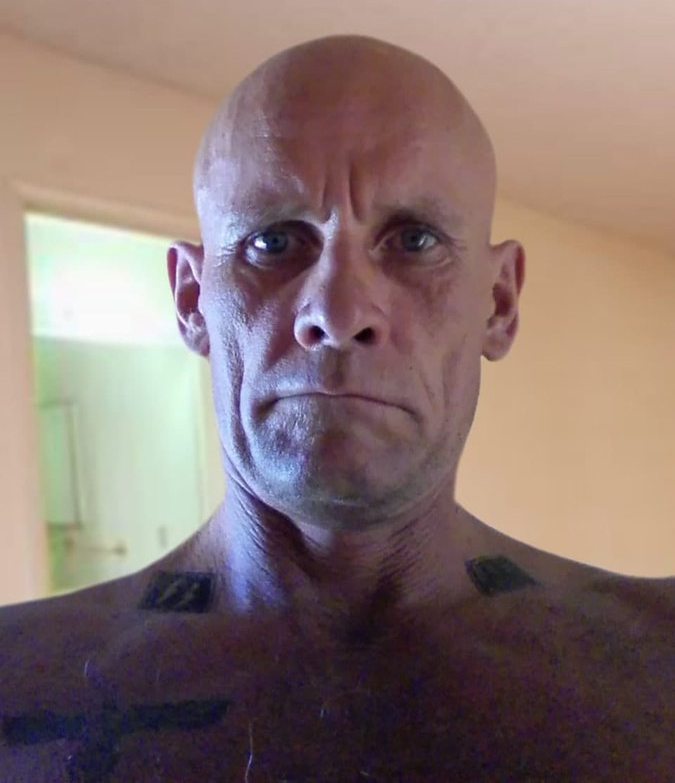
The invasion prompted the Kremlin to acknowledge the Wagner Group's integration into the Russian Armed Forces, funded from the federal budget.
Wagner Group: abundance of military resources
Yaroslav Malyk, a former platoon commander of Ukraine’s 130th Separate Tank Battalion, recounted the events in December 2022 in the Bakhmut sector of Donetsk Oblast. His battalion was stationed near villages, which had been liberated from Russians but were targeted for reoccupation, involving the Wagner Group and the "Akhmat" special unit of the Russian Guard. Close combat followed amid enemy artillery and tank fire at a range of 15-20 meters.
“Their commanders were well-trained military men. It would be wrong to say that they were merely ‘convicts’ or ‘partially mobilized.’ Instead, their infantrymen were running back and forth, and they could be killed without too much trouble,” recounted Malyk.
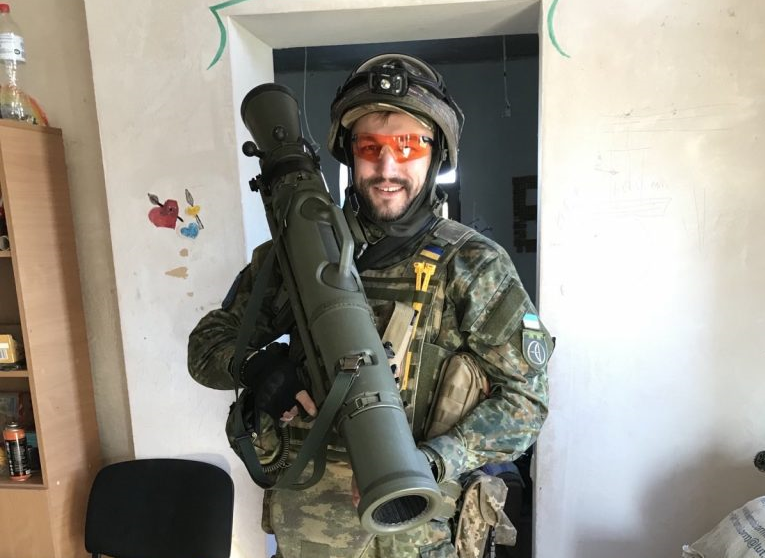
Malyk's group, consisting of about ten members, confronted a Wagnerite platoon, coming close to defeating them. However, the surviving enemy units regrouped from concealed positions, reloaded, and re-entered the fray. The Ukrainians were forced to withdraw while closely monitored by a wing-shaped drone. The Wagner Group fighters attacked them with a range of heavy weaponry, including machine guns, mortars, artillery, and a tank. This five-hour battle eventually led to Malyk's group retreating.
Wagner's aggressive captivity campaign
In mid-September 2022, Ivan Dovhan, a soldier of the 58th separate motorized infantry brigade, faced a powerful attack and heavy shelling by the Wagner Group in the Bakhmut area. He was subsequently taken prisoner. During his captivity, he noticed captors wearing unmarked pixelated vests and colored bracelets. Later, Dovhan learned that red ones indicated HIV-positive individuals and white ones represented hepatitis C carriers.
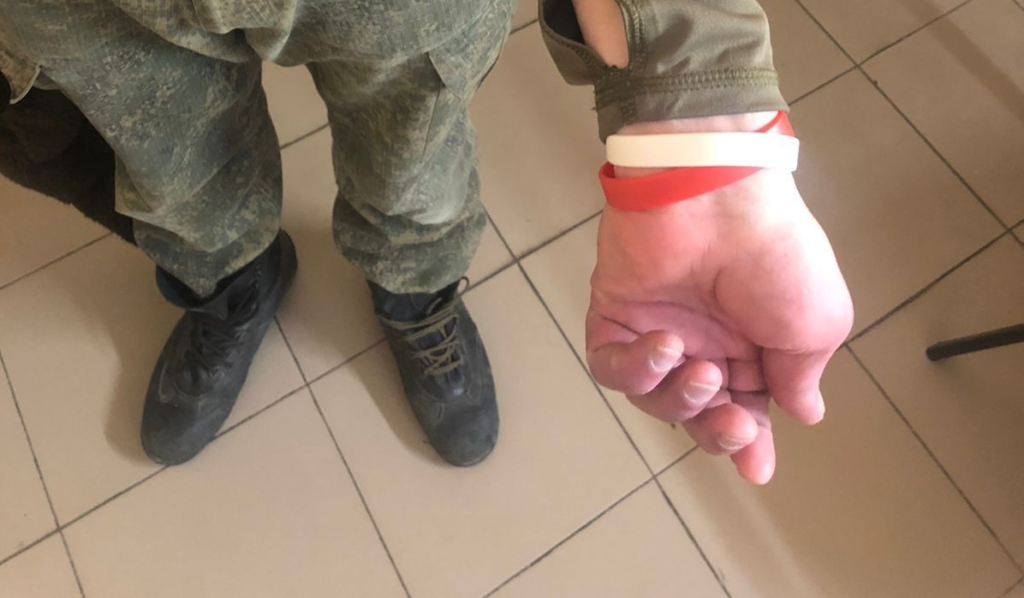
In November 2022, Oleksandr Koval, a soldier from the 58th Brigade, was captured during a Russian offensive in the Bakhmut area. He sustained injuries, lost consciousness, and woke up in the custody of unidentified soldiers. They took him as a captive due to their need for prisoners that day and transported him to what he believed was their nearby headquarters, confining him in a basement.
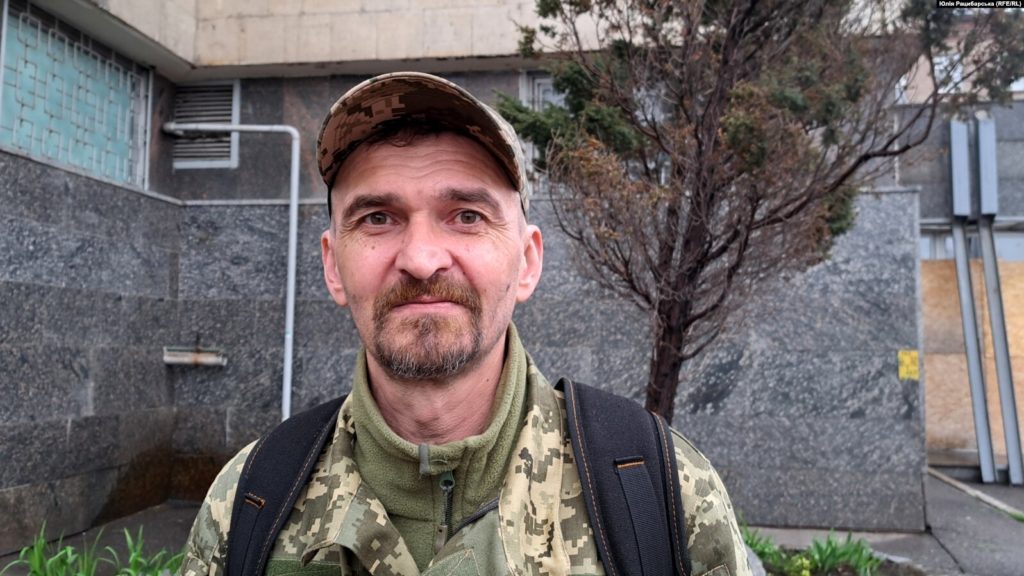
On 29 December 2022, Volodymyr Batsko, a member of the 17th Tank Brigade, was captured by the Wagner Group near Bakhmut. He witnessed a mass execution of Ukrainian PoWs, where only three survived. With 20 of them positioned and no backup, the Ukrainians were encircled and low on ammunition. Batsko was separated from the others by 5-10 meters when a burst of automatic rifle fire broke the silence.
“I turned around and saw four men standing there shooting our guys, who were bleeding a river. ‘Zeroed out,’ as they put it. I don’t know on what principle they picked the three of us,” Batsko explained.
Later, he realized his survival wasn't due to chance. As a liaison officer, the Wagnerites believed he held valuable information. The same reasoning spared drivers, expected to be familiar with the area.
On 15 February 2023, Viktor, a member of the Chernivtsi Territorial Defense Unit (name changed for privacy), was captured by the Wagner Group. The day before, he and his comrades were moved to a position in Krasna Hora, Donetsk Oblast, which was under heavy attack. Viktor, who was injured, sought refuge in a city controlled by the Wagner Group. When he tried to return to his lines, he was apprehended by the enemy and taken to Soledar, which was then under the control of the Wagner Group.
“I didn’t speak Russian well, so they beat me for every Ukrainian word. On the way, they told me that they were ex-convicts, that they were recruited in prisons,” the man recalled.
Interrogation and killing of prisoners
Oleksandr Koval recalled the interrogation at Wagner’s headquarters.
“They showed me the freshly severed heads of our guys, mounted on rebars. One of them said: ‘This is Edik, and this is Valera. They wanted everything to be done according to the Geneva Conventions. Do you want to do it according to the conventions too? There is room for a third’,” Koval said.
This incident is not isolated. In April 2023, open sources revealed a Ukrainian PoW being beheaded. Former Wagner commander Andrei Medvedev, who sought asylum in Norway, confirmed the involvement of Wagner members in this crime.

In a separate incident, Yaroslav Malyk mentioned the challenges in recovering his comrade's body, which could only be done two days later.
“The body was undressed; only underwear remained and the rest of the clothes, body armor, and helmet were missing. In addition, the body had been mutilated: the head had been cut off and smashed,” he added.
Ivan Dovhan was interrogated by a man with the call sign "Dykyi" ("Wild One"), who seemed to be in charge of their group. "Dykyi" used a bat to smash Ivan's left leg and right knee. The Wagnerites also confiscated documents from fellow Ukrainian soldiers, which disclosed their previous military service in former Yugoslavian nations.
“Then a completely different interrogation began. They beat me so hard that I was blue. I could not move my legs or arms. They asked me the same thing: where are the foreign legions and HIMARS? I said I didn’t know. They knocked out my teeth with a stun gun,” Dovhan said.
Oleksandr Koval recounted how the Wagner Group subjected him to what they called "Eurodelivery."
“They wrap you up using wide scotch tape, with your arms at your side, with the tape going all the way to your knees. You find yourself as if in a cocoon. And they start beating you. At first you feel intense pain, but then everything goes numb. I thought I would lose my hands,” said Koval.
The Wagnerites' aim wasn't to extract information from Koval; they just had fun this way. Volodymyr Batsko told a similar story.
“They tried to shoot me with an automatic rifle. They interrogated me with a hammer. They beat me on the arms. They also strangled me with a belt. Just for fun,” said the man.
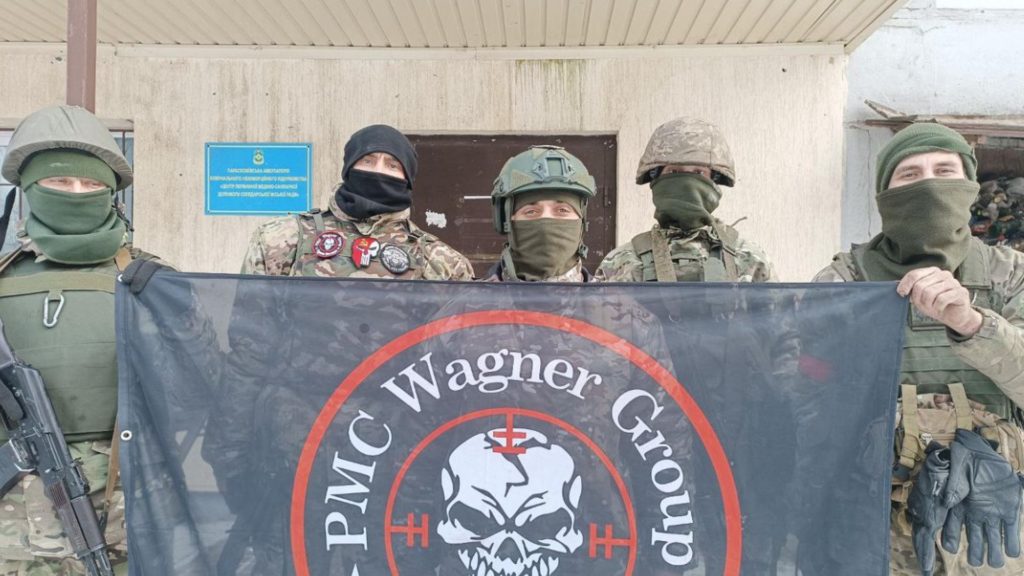
Wagnerite captors relocated several interviewed Ukrainian prisoners from combat position basements to Soledar, where the group's headquarters was situated in a two-story building near the city's entrance. Viktor Dovhan recalls observing numerous computers and maps inside.
“The monitors showed all of Bakhmut. Drones were hovering everywhere. There were some powerful radio stations, because we could hear them, and they were asking questions: ‘What should we do?’” added Dovhan.
On 17 April 2023, Ukrainian soldier Andriy was captured by the Wagnerites near Bakhmut. During his interrogation, he faced six captors armed with a pistol, a baton, a bat, pliers, and scissors.
“They untied my eyes, removed the scotch tape, and said: ‘Show us your positions.’ I showed the one that was already completely destroyed. One of them said: ‘You don’t give us enough information, we’ll shoot you now',” recalled the man.
Andriy was pressed about his hometown, Zoria in Rivne Oblast, with one interrogator mentioning his own ties to the area. Subsequent sessions involved brutal beatings with bats and automatic rifles, culminating in an incident where an individual referred to as "Korean" severed Andriy's left ear, resulting in severe bleeding.
“They shouted: if you don’t tell us, we’ll rape you, check your knees, check your kneecaps to see if they are strong or not,” recalled Andriy.
They even intended to extract his nails but had tied his hands too tightly, causing swelling that prevented it. Fortunately, the intervention of a man with connections to Rivne halted the torture, sparing Andriy further harm.
In a separate incident, another soldier was set on fire by the Wagnerites. Prior to that, he had been bound and drenched in gasoline.
“My leg, arm, and a fleece shirt on my body were on fire, and I was wearing a turtleneck under it, which did not catch fire, so I did not sustain severe burns. When the fire started to reach my face, chin and my ear started to burn, I fell to the ground trying to put out the fire,” said the former prisoner, who requested not to be named.
Then they threw some cloth over him and started pouring water. In shock, he was moved to the Wagnerite higher command's location. Forced to his knees, he endured their harsh interrogations. Later, he was transported to another site.
Wagner’s prison: a shoe factory
The Wagner Group held Ukrainian prisoners in a former shoe factory in Pervomaisk, Luhansk Oblast, located 70 kilometers from Bakhmut. These makeshift cells, often in semi-basements, accommodated up to 60 people. Conditions were harsh, with dim lighting, no proper furnishings, and prisoners sleeping on wooden pallets covered with cloth. Sanitation was minimal, with empty water bottles used as makeshift toilets, and there were no washing facilities. Prisoners received Russian army dry rations once a day, with one ration shared among 2-3 prisoners.
“We were guarded by Wagnerites. Young guys, 20-22 years old. They wore no insignia, just their uniforms, caps and masks. One of our comrades said something about the rights of PoWs, so they took him out, beat him for I don’t know how long, brought him back and dumped him,” says the former prisoner.
Within the cells, prisoners received minimal medical attention. Those with festering fingers from torture were given only iodine and bandages. In severe cases, amputations were performed, and the doctor displayed little concern for their pain.
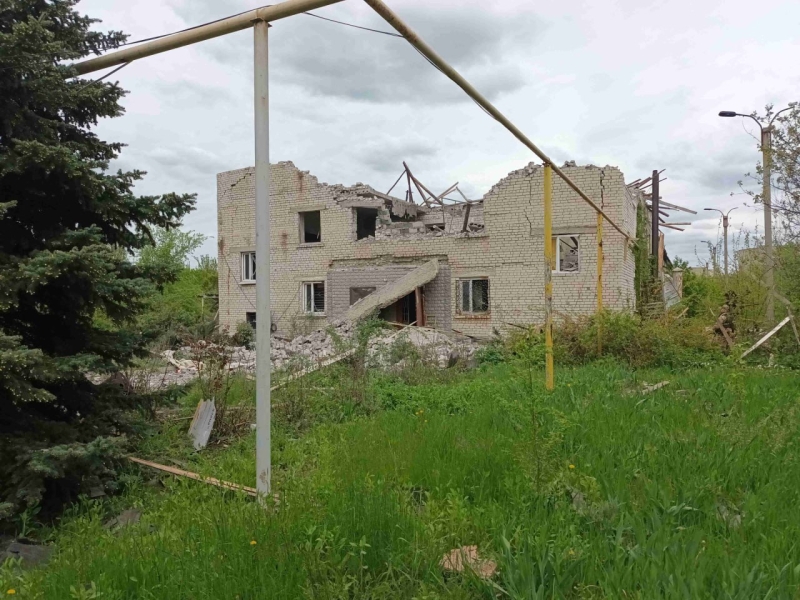
A few prisoners were selected for outdoor work, like unloading humanitarian aid, while the majority were held in constant darkness, making it impossible to distinguish day from night.
In this group, about 80% of the prisoners had severe injuries and were unable to do anything. One older man, gravely injured and with a severed ear, succumbed after three days despite medical interventions. The guards reacted with little surprise to his passing.
The exact number of PoWs held by the Wagnerites in Pervomaisk is uncertain. Apart from the shoe factory, witnesses reported that Ukrainians were also detained in nearby buildings.
Prigozhin's oversight in exchanges
Between September 2022 and June 2023, at least 11 exchanges occurred with the Wagnerites, mainly in the Bakhmut area. These exchanges involved the release of Wagner Group captives and, notably, Russian regular army personnel, highlighting their close ties with the Russian Armed Forces.
The last exchange took place on 11 June 2023, shortly after the Wagner Group's announced withdrawal from the Bakhmut area. The two largest exchanges, on 16 April and 25 May, resulted in Ukraine repatriating 130 and 106 servicemen, the majority of whom had been held captive by the Wagner Group.
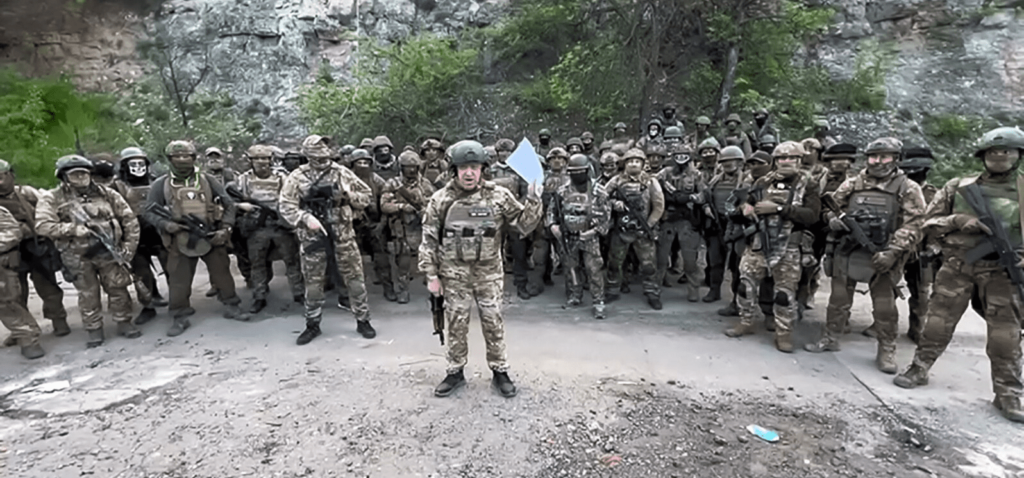
Before the May exchange, Ukrainian PoWs were gathered at an unknown location, believed to be a salt mine, where they were lined up, and Yevgeny Prigozhin was introduced as the head of the Wagner Group.
“He said: ‘You see how kind we are. We didn’t beat you, we didn’t cut you, we didn’t cut off your fingers or ears.’ In fact, half of those in the room were crippled by the Wagnerites,” the former PoW recalled.
Some Ukrainian prisoners of war held by the Wagner Group were used as servants at the Pervomaisk shoe factory. Later, instead of exchanging them as prisoners of war, the Wagner fighters took them away. Those Ukrainian POWs not exchanged may be transferred to detention centers in occupied Donetsk.
Investigating crimes against civilians in Ukraine: Challenges ahead
The Ukrainian Prosecutor General's Office uncovered Wagnerite attacks on Ukrainian civilians in Kyiv Oblast. In May 2022, notices of suspicion for cruelty to civilians were issued to five Russian Armed Forces servicemen and three Wagner group members (in absentia).
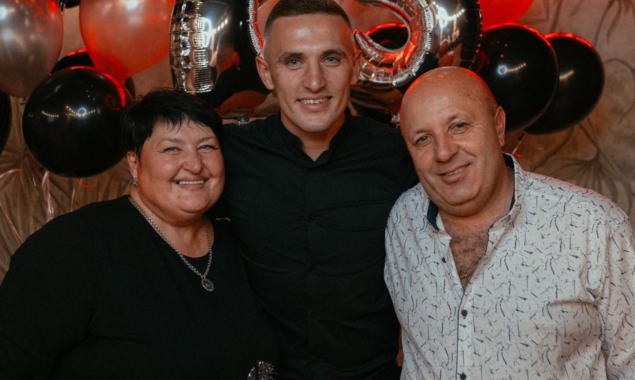
These crimes encompassed the abduction, torture, and murder of Olha Sukhenko, her husband, and son in the village of Motyzhyn, as well as the fatal wounding of Yaroslava Lytvynenko. Notably, while prosecutors believe the perpetrators were Wagner mercenaries, Yaroslava's father, Mykhailo, offers a different perspective.
“They were not Wagnerites. They have their own patches and emblems, and the military I spoke with did not have such emblems. I think it was a platoon or a reconnaissance unit,” said the man.
In April and September 2023, videos surfaced online where Wagnerites admitted to the killing of Ukrainian civilians, including children, teenagers, and adults in Soledar and Bakhmut. Initially, two Wagnerites mentioned receiving an order in early February 2023 to shoot anyone aged 15 and older, resulting in them opening fire on civilians attempting to cross into the occupied territory. One of them recalled how he “wiped out” the basement of a nine-story building with 300-400 civilians, about 40 of whom were children.
Subsequently, two other Wagnerites shared their accounts of receiving orders to clear settlements near Soledar and the resulting deaths of numerous civilians in late November and early December 2022. All of them mentioned orders to throw grenades at civilian homes.
Confirmation of these incidents may require de-occupation, as the head of the Soledar city military administration, Serhiy Hoshko, could not provide information about these allegations.
Wagner Group mercenaries have likely committed war crimes like torture and murder of civilians in Ukraine, given their brutal track record in Africa and Asia. A recent ACLED report suggests Wagnerites abducted, raped, and killed thousands near mining sites in Central African Republic and Mali, destroying villages and burning homes with women and children trapped inside.
Looming impunity: escalating threat to human rights
Vladimir Putin admitted on 27 June 2023, that the Russian government fully funds the Wagner Group, allocating around $1 billion for salaries and incentives in just one year, from May 2022 to May 2023. However, Russia has taken no measures to investigate potential war crimes committed by the Wagner Group in Ukraine.
The Wagner Group's impunity allows them to disregard human rights, especially in their treatment of civilians and prisoners of war. Without accountability for the Wagner Group and other military entities controlled by Russia, their crimes will likely escalate, leading to further violations and a significant threat to global peace and security.
Based on the Media Initiative for Human Right’s report “Wagner Group. Beyond Accountability” by Tetyana Katrychenko, Maria Klymyk, Lidiya Tarash; summarized by Yevhenia Martyniuk.
Read more:
- ISW: Remnants of Wagner Group fighting near Avdiivka under Russian MoD
- UK declares Russian Wagner Group a terrorist organization
- ISW: Assassination of Wagner Group Leadership effectively ends organization's autonomy from Kremlin

